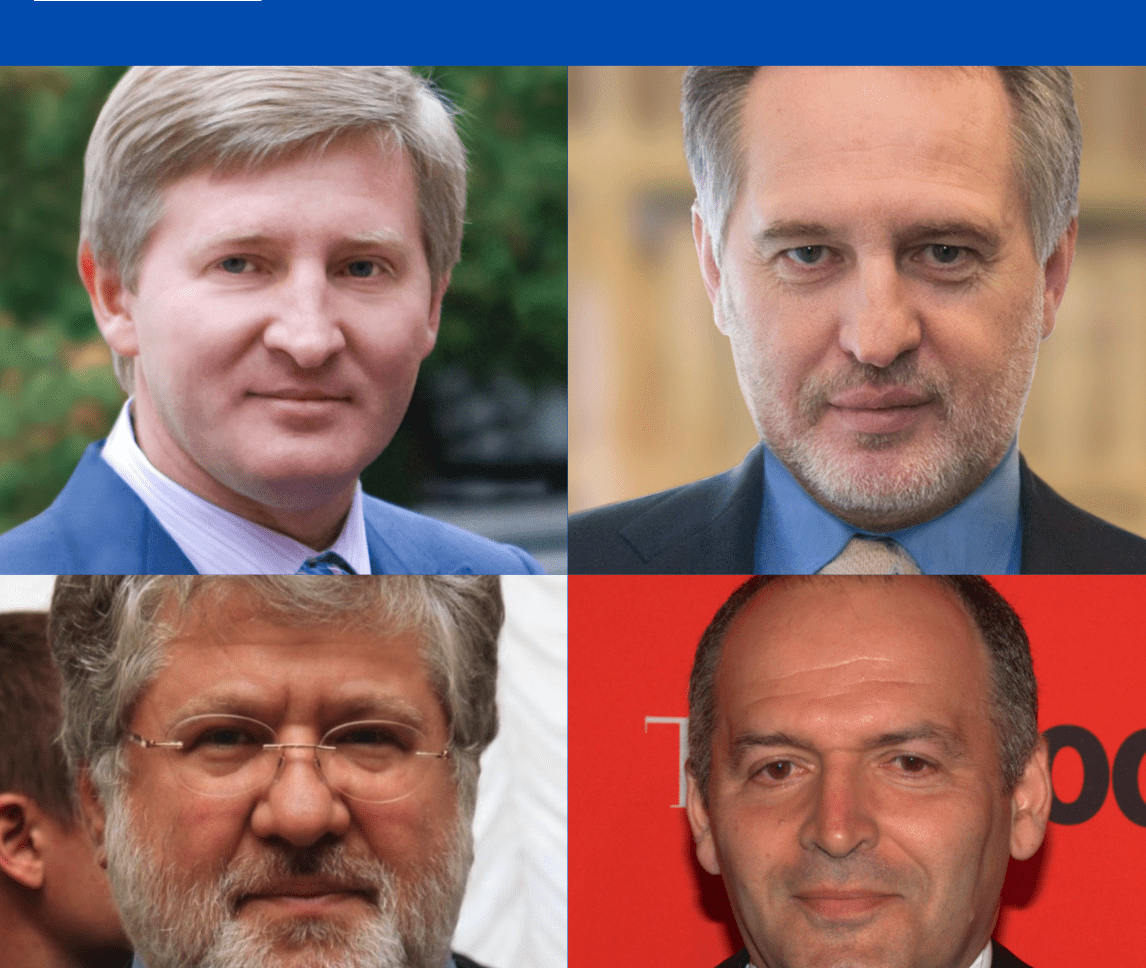

Since Ukraine’s independence in 1991 when people had access to only a few television channels, the television market in the country has flourished as a plethora of new commercial channels launched operations. Currently, the most popular television channels are controlled by the four largest media groups in the country: Media Group Ukraine, 1+1 Media, Inter Media Group and StarLightMedia, which also own numerous news portals and radio stations.
All these groups belong to oligarchs.
Their media not only shape the public opinion and political preferences according to their interests, but also control the largest part of the wealth generated in the Ukrainian media industry, according to a new report released today by the Center for Media, Data and Society (CMDS).
These oligarchs, Victor Pinchuk, Igor Kolomoysky, Rinat Akhmetov and Dmytro Firtash, who run television and radio channels as well as print media outlets, pulled in revenues upwards of US$ 330m combined in 2020, according to estimates from a local industry body.
“The scale of revenues at these media behemoths, which are believed to be much higher if informal payments from allied businesses or political sponsors are added, dwarfs the financial power of their competitors, many of whom are struggling to survive,”
Olesya Grabova, the report’s author wrote.
At the same time, media is not the main business activity of the oligarch-owned groups, but only a small part of their conglomerates. Although unprofitable, these media businesses continue to operate, a sign that they are kept alive for other purposes.
Radio and print media are funded mostly from advertising.
“In general, the radio and print segments have been in a shaky position during the last decade as they steadily lose audiences to the dominant television and internet. In terms of profitability, they balance on the edge,”
the report found.
The government is not a large media funder compared to the commercial players. The national public broadcaster, built on the relics of the former state media, has seen its funds regularly cut since its launch in 2017, in spite of regulations stipulating that the state must allocate to the public broadcaster at least 0.2% of expenditures of the general fund of state budget for the previous year.
Another source of funding in Ukraine’s media is philanthropy, but the independent and niche projects benefiting from grants are not powerful enough to set the agenda; “only motivated individuals who seek alternative information consume their content, which is usually available online only,” the report concludes.
Two intrepid journalists embarked on an investigation into the unjust conviction of a Czech man,…
Every year, a journalism class at a Vienna-based university unearths attention-grabbing stories. The idea of…
The decision sets a dangerous precedent, giving authorities the power to fine media as they…
With the foundation recognized as a major supporter of independent journalism, its decision is bad…
The closure of Tele Liban raises concerns about the future of the station and its…
The arrest of Mehdi and Majid Nikahd serves as a stark reminder of the challenges…